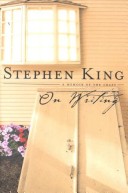Success is the ability to go from one failure to another with no loss of enthusiasm.
–Winston Churchill
 Most writers worry about rejection, not acceptance. Ray Bradbury says that the successful writer has to deal with both: “You have to know how to accept rejection and reject acceptance.”
Most writers worry about rejection, not acceptance. Ray Bradbury says that the successful writer has to deal with both: “You have to know how to accept rejection and reject acceptance.”
Several articles on this site (usually in the “For Writers” section) offer advice to aspiring writers who are trying to find agents or publishers. The most common question I’m asked (after “How do I get an agent?”) is: “How many query letters should I send out?” Or, “I found an agent willing to represent me, but she has submitted my manuscript to five (or eight, or twelve) publishers, with no takers. What should I do now?”
Most writers start out asking “Is my writing any good?” but that inevitably leads to the question: “Is it good enough for me to get paid?” Literary agents are pretty good at spotting what sells, or at least what they can sell to an editor at any given time. Good agents know the marketplace. Writers, even working writers, don’t usually know what sells. Writers know how to make interesting sentences, some of which may sell, others not so much.
If you have read my advice to aspiring writers seeking tips on how to get published, then you know that I don’t subscribe to the “you can do it, just keep at it” school of mentoring. Obviously not everyone who wants to write for hire can get paid to write, just as not everyone who wants to get paid for playing baseball succeeds just by trying really hard. It’s true that hard work matters more than talent, which is fairly common, but sometimes hard work alone won’t do it.
Sometimes would-be writers seem to be asking: “How hard should I try?” Answer: Try as hard as you want to try. And don’t be afraid to quit. I’ve quit several times myself, and it always leads to something new and interesting . . . to write about. In my case, at various times, I have sworn off writing and traveled through Africa, gone to law school and become a working lawyer, and learned some computer programming. I wouldn’t trade any of those three endeavors for equal parts of writing time. Maybe I’d feel differently if I pulled down million-dollar book advances, but I doubt it. As Tom Stoppard put it: “Every exit is an entrance somewhere else.”
If you need a push before you can give yourself permission to quit, read Aspiring Writers: The Worst Advice You’ll Ever Read, by Charles Hugh Smith. Or, the more recent, My Amazon Bestseller Made Me Nothing, by Patrick Wensink. Disheartening? You bet, but all it says is that if you are in the writing game for money or glory, you’ll probably break your own heart. Better to be in it because you love reading and writing. Sure it’s nice to get published, but then it starts all over again. No sooner do you get published, then you want a New York Times Review, a good one, please. Next, the bestseller list, of course. Annie Lamott talks about this when giving advice to aspiring writers:
Almost every single thing you hope publication will do for you is a fantasy, a hologram – it’s the eagle on your credit card that only seems to soar. What’s real is that if you do your scales every day, if you slowly try harder and harder pieces, if you listen to great musicians play music you love, you’ll get better.
–Anne Lamott, Bird By Bird: Some Instructions on Writing and Life
Or as Aristotle put it: “We are what we repeatedly do. Excellence, then, is not an act but a habit.” Maybe it’s a bad habit? That’s up to you. For an up-to-the-minute take on this notion that talent is often a matter of habit, see Genius: The Modern View by David Brooks in the New York Times.
 If you think writing is a waste of time unless you get paid for it, then quit right now. If you intend to write no matter what, then keep writing and keep sending your stuff off to agents, no matter how often it gets rejected. What’s to lose, except pride and postage? Collect rejection slips and be proud of them. (Almost every writer saves them; someday a literary neuro-psychologist probably will explain why.) Getting discouraged is a daily rite of passage. Take a look at Stephen King’s On Writing and his account of how he tossed his first stab at Carrie into the trash. That’s right, he threw it away. And bear in mind, dear reader, these were the days of typewriters, not computers. It was bye-bye one-and-only draft. On trash day, his wife Tabitha salvaged it and convinced Stephen to keep going and finish the thing. (See On Writing, pages 75-77.) When Doubleday bought the manuscript of Carrie for $2,500, the publisher had to send a telegram, because the Kings were living in a trailer and couldn’t afford a phone.
If you think writing is a waste of time unless you get paid for it, then quit right now. If you intend to write no matter what, then keep writing and keep sending your stuff off to agents, no matter how often it gets rejected. What’s to lose, except pride and postage? Collect rejection slips and be proud of them. (Almost every writer saves them; someday a literary neuro-psychologist probably will explain why.) Getting discouraged is a daily rite of passage. Take a look at Stephen King’s On Writing and his account of how he tossed his first stab at Carrie into the trash. That’s right, he threw it away. And bear in mind, dear reader, these were the days of typewriters, not computers. It was bye-bye one-and-only draft. On trash day, his wife Tabitha salvaged it and convinced Stephen to keep going and finish the thing. (See On Writing, pages 75-77.) When Doubleday bought the manuscript of Carrie for $2,500, the publisher had to send a telegram, because the Kings were living in a trailer and couldn’t afford a phone.
Consider the publishing history of Harry Potter. True, Rowling found an agent on her second try (most unusual, just ask any author), but then the manuscript was rejected by publisher after publisher: “Too strange! Too long for a children’s book! Too unbelievable! Sorcerers? Spells?” Eventually, Bloomsbury, a new publishing house at the time, bought the manuscript for roughly $5,000, and then printed 500 copies for the first run. That’s how high their expectations were.
Just recently, Catherine O’Flynn, 37, joined the likes of H. G. Wells, William Golding, Graham Greene and J. K. Rowling by finding spectacular success after a string of rejections when her mystery story What Was Lost took the First Novel prize at the Costa Book Awards (formerly known as the Whitbread Prize): Rejected author has last laugh. If you seek particulars on how many rejections are “normal” or “enough,” consult the likes of Miss Snark, always funny and a working literary agent with great advice about the marketplace and query letters (although, as of 20 May 2007, her blog appears to have gone dark).
Have a look at today’s New York Times Book Review and The Story of ‘Night’. In the late 1950s, fifteen publishers rejected Elie Wiesel’s account of his time at Auschwitz and Buchenwald, before the small firm Hill & Wang finally accepted it. You can empathize with the editors who rejected it, can’t you? “Oh, here’s a cheery, heart-warming story: ‘My time at Auschwitz.'” As of today, Night has sold 10 million copies, only 3 million of which are due to Oprah’s recent endorsement. The point isn’t that you too can sell 10 million copies of your book. Night could have sold only 5,000 copies, and it would still be a great book. The point is that you can’t steer by what the marketplace seems to think is “good” at any given moment. Editors, agents, and publishers don’t know what readers will want next. They can make educated guesses, but nobody knows until the book comes out.
For the most recent example, see Kathryn Stockett’s The Help, rejected by 50 agents, then published and suddenly hot.
An old, inside publishing joke sums it up. “We’re publishing ten books next year,” says the publisher to the business reporter, “and two of them will be bestsellers.” The reporter asks, “Which ones are the bestsellers?” The publisher replies, “We don’t know yet.”
Finally, if you get downcast (that would be the status quo), visit Literary Rejections On Display, or consider Hemingway’s enduring observation: “That terrible mood of depression of whether it’s any good or not is what is known as The Artist’s Reward.”
Other than self-discipline, there’s no substitute for finding someone who believes in you besides your lonesome.
My wife made a crucial difference . . . . If she had suggested that the time I spent writing stories . . . in the laundry room of our rented trailer . . . was wasted time, I think a lot of the heart would have gone out of me. . . . Whenever I see a first novel dedicated to a wife (or a husband ), I smile and think, There’s someone who knows. Writing is a lonely job. Having someone who believes in you makes a lot of difference. They don’t have to make speeches. Just believing is usually enough.
–Stephen King, On Writing.
See also, Good Books On Publishing and How To Query A Literary Agent.
